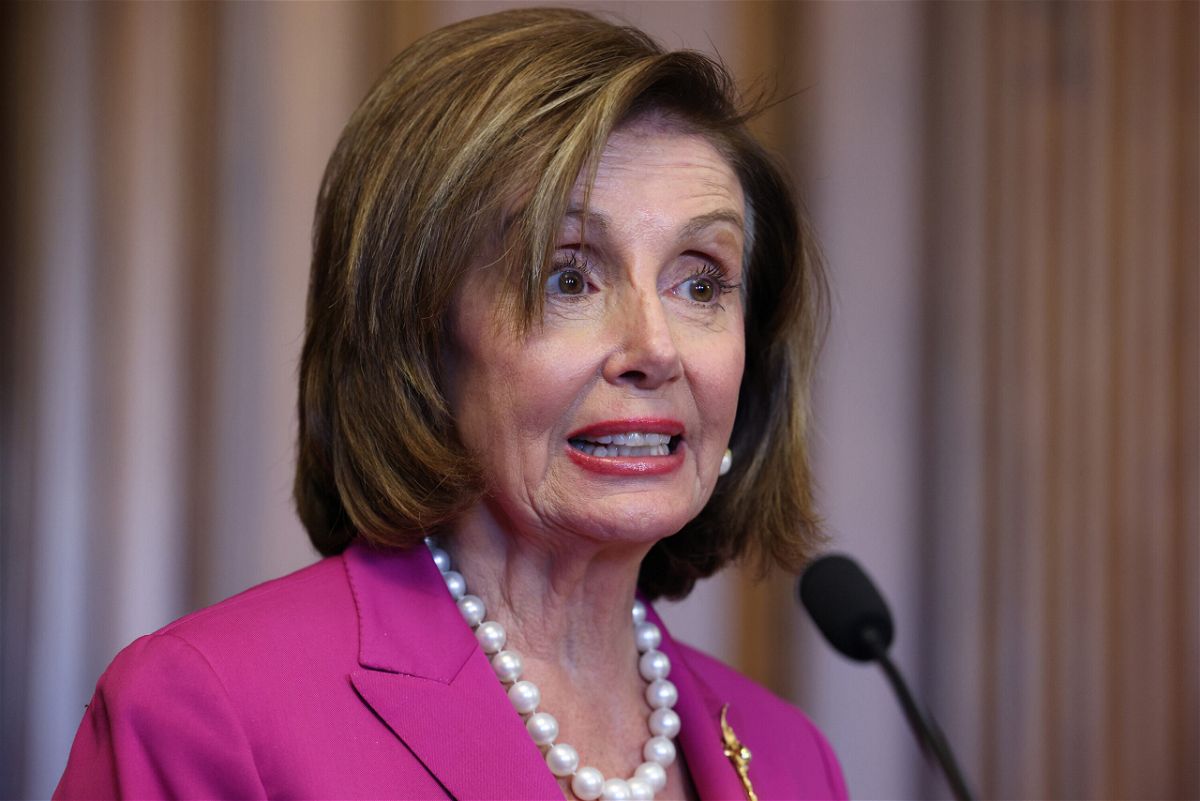Liberals revolt at Pelosi’s plan to hold infrastructure vote without social safety net bill

By Alex Rogers, Manu Raju and Annie Grayer, CNN
Liberals in the House Democratic Caucus revolted over Speaker Nancy Pelosi’s plan to hold a vote Thursday on a roughly $1 trillion bipartisan infrastructure bill before striking a deal on a multi-trillion-dollar spending package expanding the social safety net.
Pelosi previously said the House would not take up the infrastructure bill, a key priority for moderate Democrats, until the negotiations over the other massive bill was done. Her strategy aimed to placate both ideological wings of her party as she leads a razor-thin majority.
But progressives predicted that they had enough votes to block the infrastructure bill unless Pelosi acted on their bill known as the Build Back Better Act, which would bolster Medicare coverage, fund paid family and medical leave, strengthen child care support and education initiatives and address the climate crisis.
Michigan Democratic Rep. Rashida Tlaib called Pelosi’s move “a betrayal,” pledging to “hold the line” and vote down the infrastructure bill.
“Our caucus is strongest when it’s unified, and decoupling these bills, it starts to pit priorities against one another,” said New York Rep. Alexandria Ocasio-Cortez. “And that’s why I disagree with separating them.”
In August, the Senate passed an infrastructure bill to spend hundreds of billions of dollars upgrading roads, bridges, transit, rail, broadband, airports, ports and waterways. But dozens of members of the Congressional Progressive Caucus privately spoke on a call Tuesday in favor of blocking that bill until the Democratic Party’s social safety net package advances, according to multiple sources.
“We articulated this position more than three months ago, and today it is still unchanged: progressives will vote for both bills, but a majority of our members will only vote for the infrastructure bill after the President’s visionary Build Back Better Act passes,” said Washington Rep. Pramila Jayapal, the chairwoman of the caucus, after the meeting.
Jayapal’s comment represented a clear challenge to Pelosi’s plan, since there are still significant disagreements between moderates and liberals on even reaching a general framework for a sweeping measure estimated at one point to cost $3.5 trillion.
Pelosi defended her reversal over her strategy to move the infrastructure package separately from the larger economic bill, which is still under negotiation with senators. Pelosi told reporters Tuesday that Democrats are hoping to move forward on the massive tax and spending bill “in the next day or so,” although there is currently no agreement.
Pelosi privately said in a House Democratic caucus meeting Tuesday that the reason for her shift is that there isn’t an agreement on the top-line number, according to sources, and that both the infrastructure bill and economic bill won’t be ready at the same time. She insisted they won’t compromise on their values, one of the sources said, and said they won’t move forward on the Democrats’ economic package until there’s an agreement with the Senate.
But liberals are getting impatient.
At a closed-door lunch, Senate Majority Leader Chuck Schumer faced sharp concerns from his caucus about Pelosi’s decision, and told Democratic senators he was not consulted before she reversed course, according to two sources.
“No infrastructure bill should pass without a $3.5 trillion reconciliation bill,” tweeted Vermont Sen. Bernie Sanders, an independent who caucuses with Democrats. “That is the agreement that was made & that is the agreement that must be kept. Physical infrastructure is important, but the needs of working families & combatting climate change is more important.”
Illinois Rep. Jesús García told CNN that he was concerned “that we could be hung out to dry” if he and other progressives help the House pass the infrastructure bill without a plan to pass their top priority. García said that he will only vote for the infrastructure bill on Thursday “if we have agreement that both bills will go.”
García added that moderates need to lay out their demands, and expressed his frustration that moderate Sens. Joe Manchin of West Virginia and Kyrsten Sinema of Arizona were slowing down the process.
“Given the traffic jam that we have of big items that need the action of Congress and the President, it’s very frustrating because they’re all very significant,” he said. “They impact the country, they impact our standing in the world, they impact the financial markets, so it’s quite frustrating but I’m still hopeful that a solution is at hand.”
Asked about progressives’ view that he is dragging his feet, Manchin responded, “everybody has their own opinion.”
“A lot of work needs to be done,” added Manchin. “We are working in good faith. It may take awhile, but whatever it takes. We need to pass a bipartisan infrastructure bill.”
This story and headline have been updated with additional developments Tuesday.
The-CNN-Wire
™ & © 2021 Cable News Network, Inc., a WarnerMedia Company. All rights reserved.
CNN’s Lauren Fox and Morgan Rimmer contributed to this report.